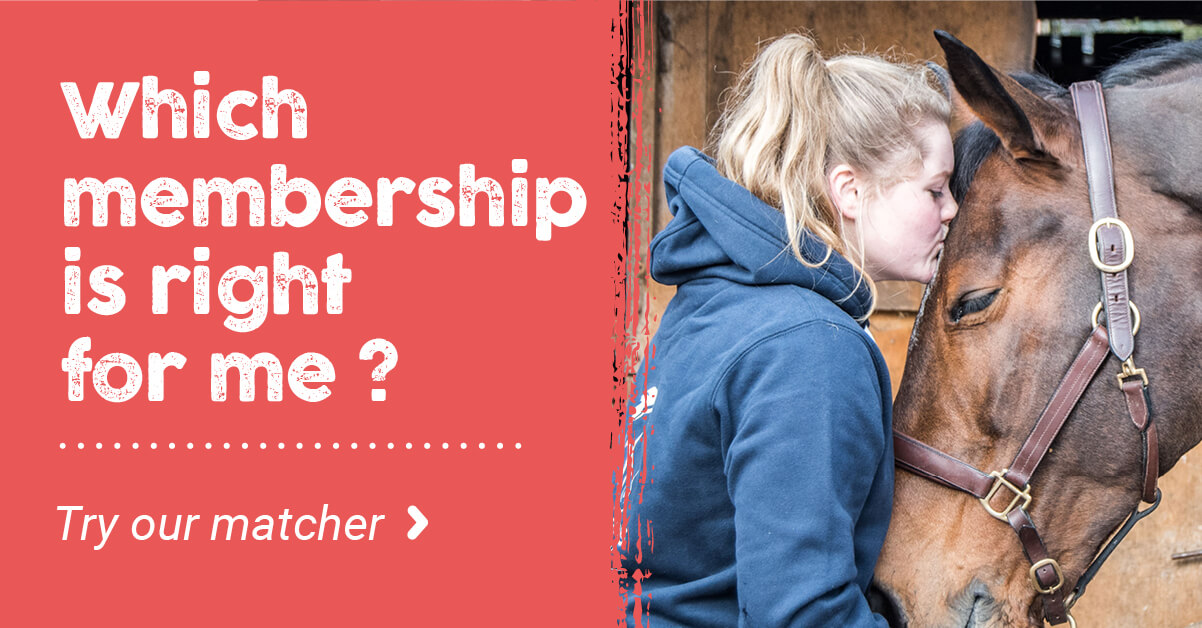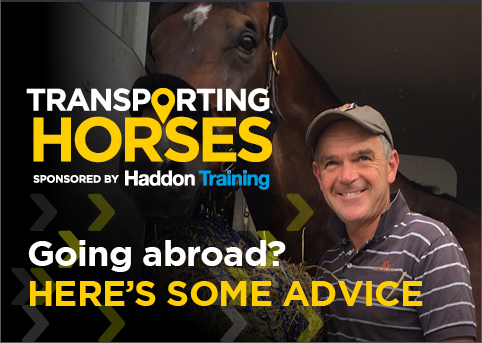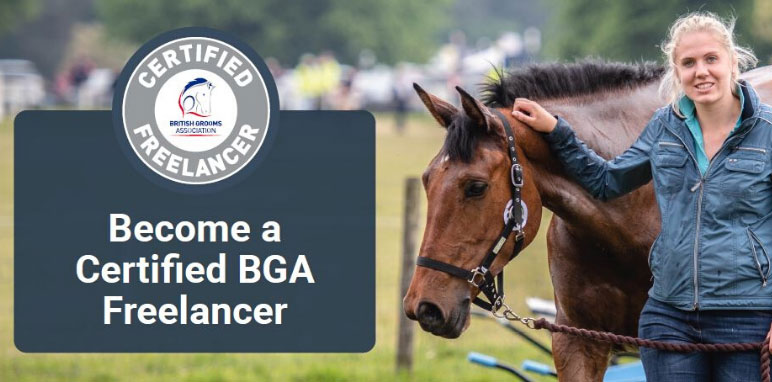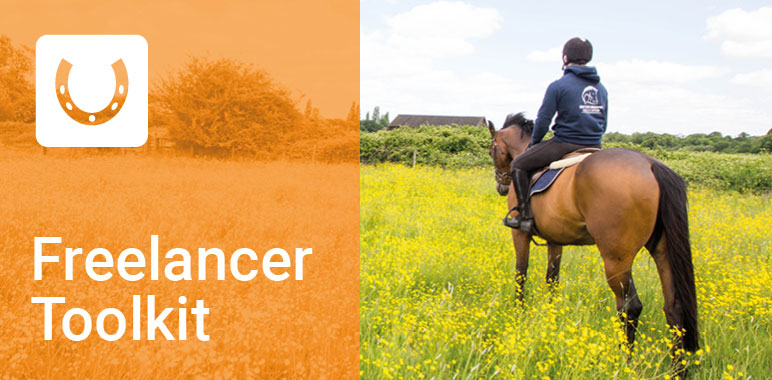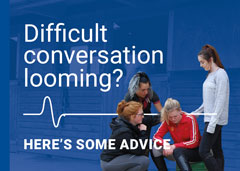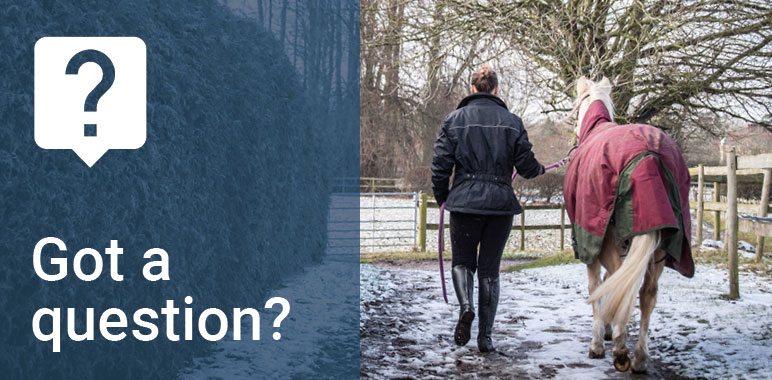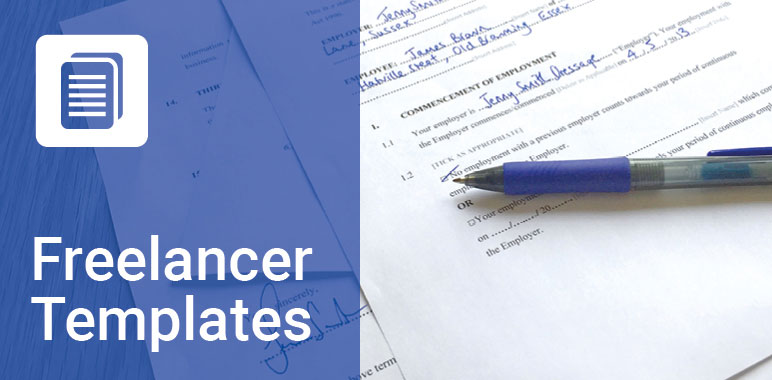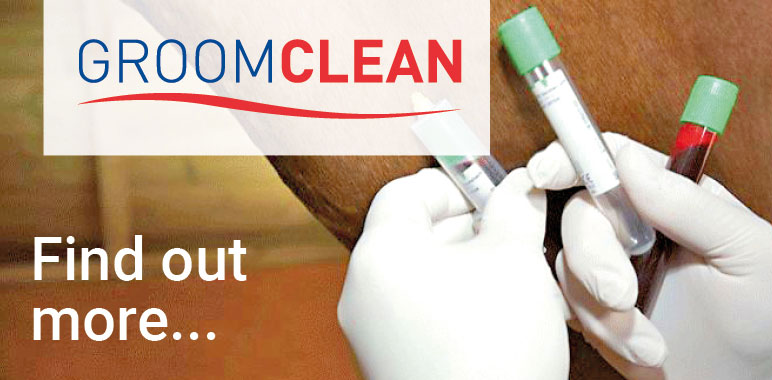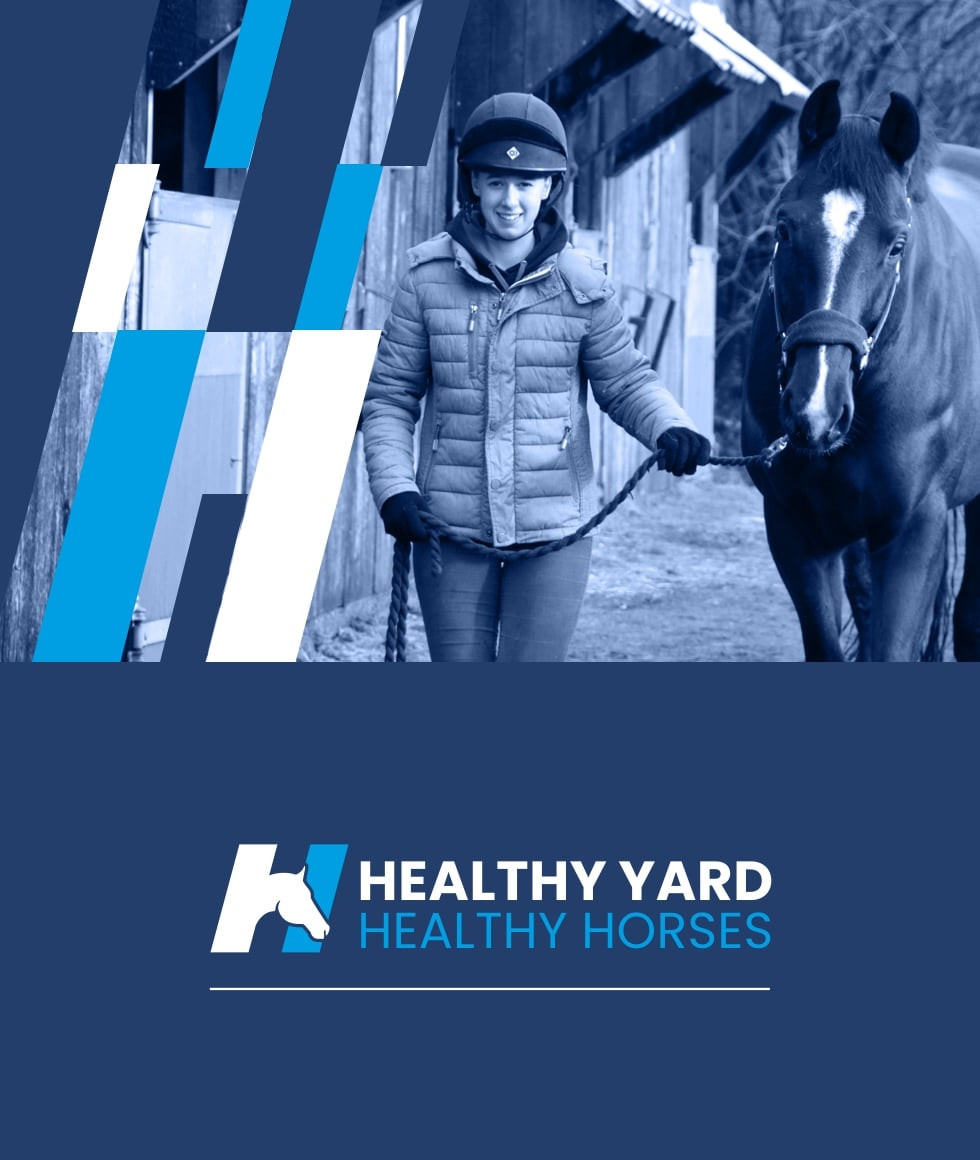- Join Now
- Login
- Member Zone
- Your Career
- Freelancing
- International Grooms Association
- BGA Training
- Healthy Yard Healthy Horses
- Transporting horses
- Brexit
- Safe workplace
- Student Zone
- Member Discounts
- BG Magazine
- Member services
- Training & Careers
- BGA CV Creator
- Horse groom training
- Where to Train
- BGA E Learning
- Career choices
- Change to Racing
- First Aid training for grooms
- Parents
- Grooms Jobs
- Grooms Life
- About
- News
- Contact

Increase in Equine Herpes Virus
2nd July 2018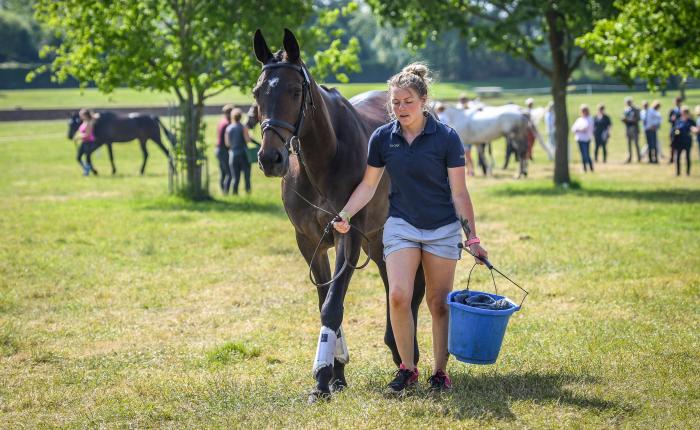
There has been an increased incidence of reports of Equine Herpes Virus (EHV) in several European countries which is prompting grooms and horse owners to tighten up on their biosecurity measures.
Although the UK has seemingly seen more problems with equine herpes virus-1 (EHV-1) infection (including neurological disease in horses in Devon, Somerset, East Anglia and Gloucestershire), EHV-1 is, and always has been, an ever present threat among horses attending and mixing at equine events.
This is because this common virus has the ability to remain in a latent (hidden) form within horses and re-emerge (become active) without warning to cause clinical problems. This is a similar phenomenon seen with herpes simplex virus in humans which periodically re-emerge to cause ‘cold sores’ in some people.
As with herpes simplex virus, the re-emergence of EHV-1 is seemingly variable between individuals and may occur in a variety of stressful situations, including with travelling and mixing of horses.
Clinical signs can include
• Increased temperature
• Nasal discharge
• Enlarged lymph nodes
• Decreased performance
• Weakness in hind legs
• Strange gait
• Anorexia
• Lethargy
Actions to take at home before attending an event (taken from AHT)
• It is good practice to routinely take the rectal temperature of all horses twice daily and record these in a diary, along with any other abnormal health signs (e.g. coughing, nasal discharge, reduced appetite, swellings etc).
• It should then be obvious when an animal ‘spikes’ an abnormally increased rectal temperature (usually ≥38.5°C/101.3°C)
• Isolate any horse with a spike in temperature and put into place biosecurity measures to avoid contamination with other horses on the yard
• It is an important responsibility not to move horses off premises where infectious disease has been recently diagnosed as it is possible that seemingly healthy animals may be incubating the disease. If these horses are taken to events, they could spread infection to other horses.
Actions to be taken whilst attending the event
• Infections such as EHV-1 spread most easily through close direct contact between horses, or through indirect contact arising from sharing of feed/water buckets and tack such as bits/bridles or humans going between horses without applying appropriate hand hygiene measures
• Unlike equine influenza, EHV-1 does not spread readily through the air between horses that are physically separated by more than 5-10m
• With these two considerations in mind, the risk of transmission of EHV-1 whilst at an event can be greatly reduced by horse owners and competitors ‘keeping themselves and their horses to themselves’ and avoiding direct and indirect contact with others.
Event organisers should be notified if an infectious disease is diagnosed in horses returning from an event as this will help heighten awareness and in some circumstances may help prevent further onward transmission from other infected premises.
If you are concerned that your horse may have been exposed to EHV-1 or any other infectious disease, please consult your vet for advice and avoid moving the animal until it has been given the all clear by your vet.
Sensible and simple biosecurity steps for horse owners and competitors attending equine events provided by the Animal Health Trust.
Be ahead of the game and find out more about biosecurity
What the personal accident policy covers you for:
- Whilst at work
- All stable duties – mucking out, grooming, washing off, turning out
- Clipping
- Riding – including hacking and jumping
- Hunting
- Lunging
- Breaking in
- Holding horse for a vet and other procedures
- Travelling horses both in the UK and abroad
- Competing in line with your job including: jumping, dressage, eventing
- Injuries that may happen to you whilst you are teaching - but you must also be grooming as part of your duties and not be a sole instructor
What the personal accident policy doesn’t cover you for:
- Riding in a race, point to point or team chase
- Stunt Riding
- Accidents occurring whilst travelling to and from work
- Riding and competing your own horse (but you can upgrade when applying for membership to include this)
- Public Liability – this is a separate insurance policy - the Freelance Groom Liability Insurance
- Care Custody and Control – this is a separate policy - the Freelance Groom Liability Insurance
If you require additional cover then please contact KBIS directly.
| GROOM | RIDER | EMPLOYER | |
|
When you are working for other people you do most of the following; muck out, turn out/catch in, tack up, groom horses, exercise Horses (including hacking, jumping and schooling), in the care of your employer/client. |
|
|
|
| Predominantly ride horses for other people including schooling, exercising and competing. | NO |
YES |
YES |
| Provide grooming services for someone else either full time or on a freelance basis i.e. an employer or a client. | YES |
NO |
NO |
| Employ staff – have an employers liability policy in your name | NO | NO | YES |
| Buy and sell horses | NO | YES | YES |


